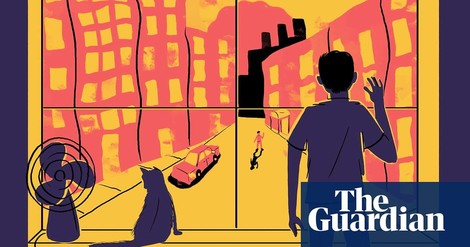Your podcast discovery platform
Curious minds select the most fascinating podcasts from around the world. Discover hand-piqd audio recommendations on your favorite topics.

piqer for: Climate and Environment Global finds Globalization and politics
I'm a freelance journalist, currently based in Madrid. I used to be a News Producer at CNBC in London before, but I thought a little bit more sun might do me good. Now I write for several news organizations, covering a range of topics, from Spanish politics and human rights for Deutsche Welle to climate change for La Marea.
Can Cities Survive The Heat That's Coming?
This summer it's been quite hot all over the Northern hemisphere. The temperature records are just hair-raising: the hottest "low" ever recorded globally (Quriyat, Oman: 42.6ºC), over 30ºC in the Swedish Arctic Circle, Japan's highest temperature ever, and, overall, what's likely to be the hottest temperature ever: Ouargla in Algeria recorded 51.3ºC. The heat has wreaked havoc: Hundreds have died, wildfires are raging and harvests are being lost.
But this is not a freak event. According to scientists from the World Weather Attribution network, human-caused climate change has made this kind of heatwave five times more likely.
How will we cope in the future? What will we do when 50ºC is no longer a rare occurrence?
That's the question spurring this article by Jonathan Watts and Elle Hunt for The Guardian. Taking into consideration that humanity is increasingly moving to urban areas, and that cities are particularly vulnerable to heat, the story paints a bleak portrait of dangerously overheated streets, where the have-nots will swelter while the rest hide in their air-conditioned apartments (this article of the same series, piqed by Thessa Lageman, explores the issue of inequality).
One of the interviewees featured in the article provides a great summary:
“You could see the physical change. Road surfaces started to melt, neighbourhoods went quiet because people didn’t go out and water vapour rose off the ground like a desert mirage,” he recalls. “We must hope that we don’t see 50ºC. That would be uncharted territory. Infrastructure would be crippled and ecosystem services would start to break down, with long-term consequences.”
I've missed some key points, such as the heat island effect that impacts cities, and the fact that air conditioners increase outside temperature. Some of those can be found in the rest of the Sweltering Cities series.
However, this is still a great story, very well written and extremely relevant.
Brace yourselves: Summer is coming.
